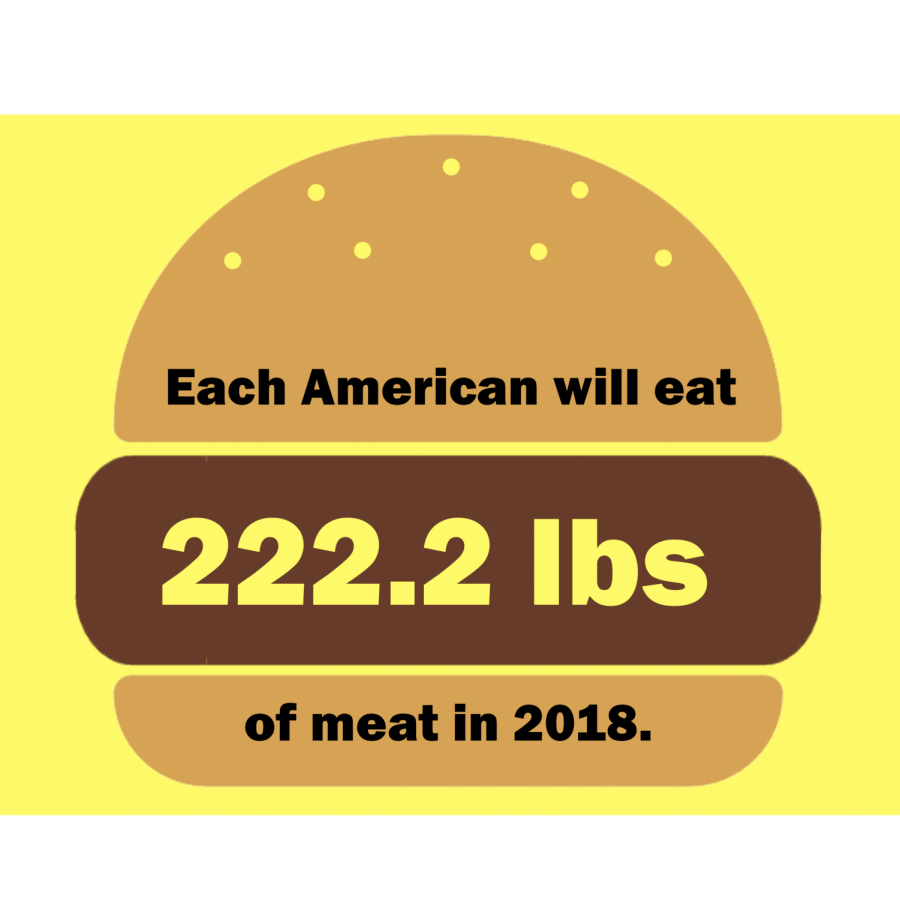Vegetarianism and veganism aren’t “health fads”
January 5, 2019
I used to be wary of people who don’t appreciate the value of a good burger. I thought of vegans and vegetarians as people subscribing to an “extra” health fad. People often transition to these increasingly popular diets simply because the diets are promoted online, or they watch a video on the gross meat production process and suddenly don’t touch steak for a few weeks.
After some research though, I learned that there’s going to be an estimated 10 billion people on Earth by 2050. I thought about how difficult it will be to sustain all of those people. For the first time, I saw new reasons for why people transition, and I now understand the importance of reducing consumption of animals. In fact, I’ve even been trying to eat less meat myself, which is shocking to those who know my beef-ramen-eating habits well.
Yes, being vegetarian and vegan is kind to animals—and it’s an arguably healthier diet. But there’s so much more to it than that. People should consider adopting these dietary guidelines for another important reason: eating animals isn’t sustainable in the long-term.
In 2018 each American will eat around 222 pounds of meat, according to Forbes Magazine. Raising livestock produces huge amounts of waste and releases large amounts of greenhouse gases into the atmosphere. In fact, an analysis by the Worldwatch Institute found raising livestock accounts for around 15 percent of global greenhouse gas emissions. Eating fewer animal products means less livestock will be bred, decreasing emissions and, in turn, slowing global climate change.
Even if a warming climate doesn’t send shivers down your spine, overpopulation will also soon require humans to be more efficient in how they cultivate land. It’s much more efficient to produce grains that feed humans than to produce grains to feed livestock.
You might not think that your habits will impact the environment in such a broad sense, but if everyone has that mentality, we’ll never be able to make real change. The more we foster awareness of how our consumption impacts the environment, the more substantial an impact and the better chance of slowing global warming we’ll have.
Learning to eat a more vegetarian or vegan diet isn’t just environmentally beneficial; it’s critical to the survival of the human race. If our generation doesn’t promote sustainable eating and make real changes in our habits, we are allowing climate change to continue to decimate our planet. It’s a harsh reality, but it’s true.
I’m not asking every person to become a vegetarian or vegan. I’m not either myself. But by simply decreasing the amount of meat we eat, we can still make a significant impact on the environment and help work toward the sustainability of the human race. Though it may seem daunting, minimizing your intake of animal products is a step in the right direction. Future generations will thank you.







